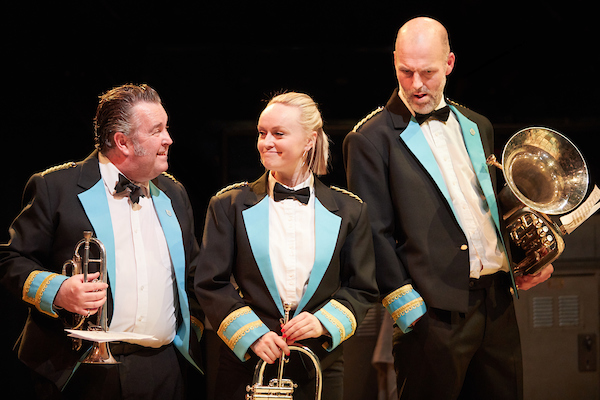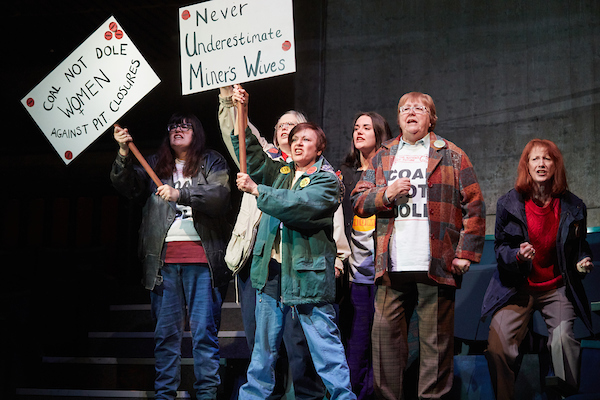
The New Vic Theatre in North Staffordshire has a proud tradition of politically and socially engaged drama that reflects the lives of the communities it serves. Under its founding artistic director, Peter Cheeseman, the theatre has created a series of original productions which both documented and dramatised the industrial struggles of the area. The Knotty, their first documentary theatre production, traced the lives of railwaymen on line which served the 6 towns of the Potteries. Later documentary plays, employing what became known as the Stoke Method, sent the cast out into the community to interview people directly involved in the events being portrayed. I Don’t Want to Set the World on Fire recorded the lives of the Roses of Swynnerton working in a local munitions factory in WW2. The Fight for Shelton Bar, perhaps the most innovative documentary, traced the battle between British Steel and the workers over the future of a steel works in the city as it happened, with updates from the unions committee at the end of each show. The struggles over the mining industry in the area were portrayed in Nice Girls, the account of 4 women occupying Trentham Colliery a decade after the strike of 1984. More recently, Maxine Peake’s Queens of the Coal Age dramatised similar events in the Lancashire coalfield.
The Vic’s current production is a stage version of the hit 1994 film, Brassed Off. A decade after the strike, the miners of Grimley face an existential threat to the their livelihoods and their community as the Coal Board offer them £23000 each to accept closure now, or take a lesser payout later on. At the same time, the colliery band are on the verge of their greatest achievement ever, with the chance to play in the National Finals at the Royal Albert Hall. But can you have a colliery band without a colliery? The play traces the effects of community divisions and poverty on real people in an environment that they can neither predict nor control, as well as the solidarity and identity that music and community can generate.

Director Conrad Nelson expertly blends the cast with the amazing TCTC brass band and community actors. The cast is so strong that its is impossible to pick one out for particular praise. I remember The Daily Mail describing the film as (something along the lines of) over-sentimental, anti-Thatcher propaganda – now that’s the sort of thing that gets an audience on their feet round here.
